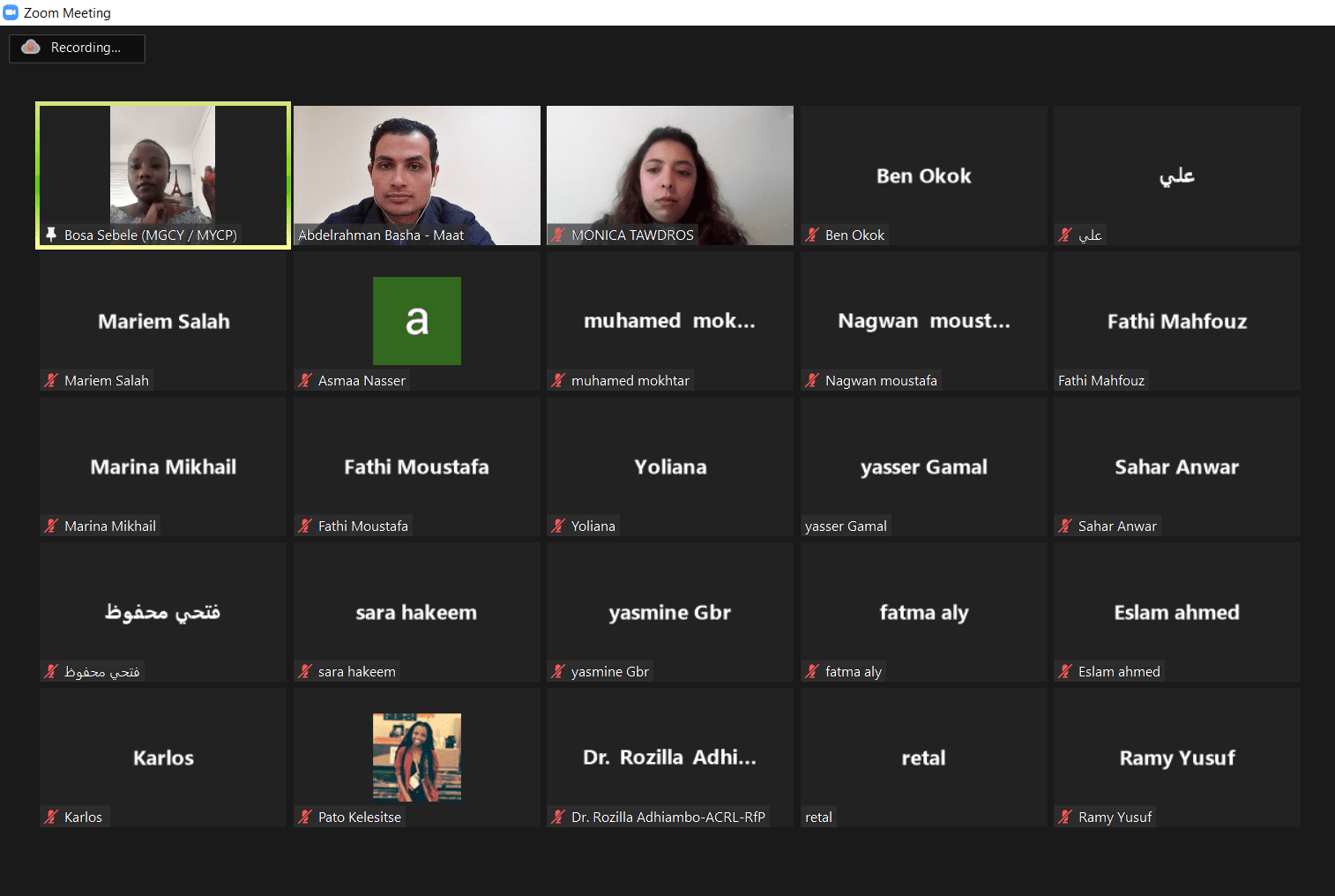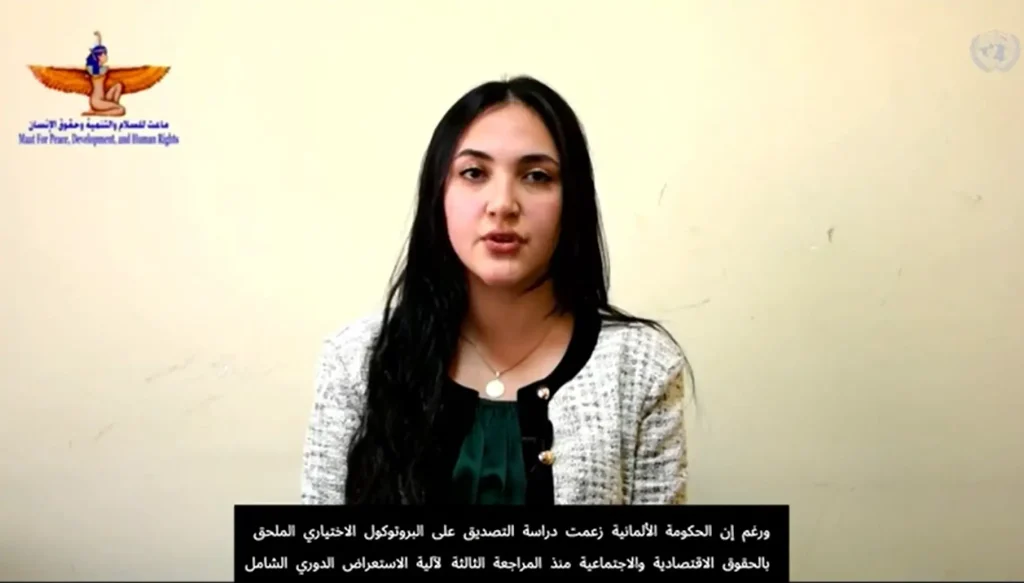“Mina”: online hate speech has contributed to promoting terrorism in Egypt
“Okok”: National and regional policies will create an environment for the development of anti-hate speech beliefs
“Sebele”: African civil society should cooperate with social media influencers to combat hate speech
“Adhiambo”: There is an urgent need to engage religious leaders in the peacebuilding programs developed by African governments
African experts have warned of the surging trends of online hate speech, particularly those targeting African youth, and stressed that engaging youth within effective policies is the first and essential step to eradicate the phenomenon of hate speech in Africa. This came in the webinar held by Maat for Peace, Development and Human Rights in cooperation with the King Abdullah bin Abdulaziz International Center for Interreligious and Intercultural Dialogue (KAICED), under the title: "Hate speech on the Internet in Africa and the Role of Youth in Combating it", on the sidelines of the project “Peacebuilders in Egypt: Combating Hate Speech in the Name of Religion.”
During the event; Monica Mina, director of the Projects and Programs Unit at Maat for Peace, Development and Human Rights, explained the intertwined relationship between hate speech and terrorism. Mina highlighted the impact of hate speech on the spread of terrorism in Egypt and the emergence of terrorist operations over the past decade, through leaders of the Muslim Brotherhood, which is classified as a terrorist group. The human rights expert recommended all institutions and different groups to unite to combat the adverse impact of hate speech online.
Bernard Okok, the Peace & Justice Advisor at Africa Council of Religious Leaders-Religions of Peace (ACRL-RfP), discussed the various forms of hate speech in the East Africa, as well as the few national and regional policies seeking to prevent the spread of hate speech in the East of the continent. Okok emphasized the need to formulate national laws that differentiate between the principles of freedom of expression and inflammatory speech. The human rights activist recommended that civil society organizations intensify their efforts with youth to confront hate speech.
Bosa Sebele, a human rights advocate, lawyer and social justice activist, addressed the effects of social media on youth in Africa, especially hate speech based on misleading religious beliefs. She also highlighted the importance of cooperation between African civil society and social media influencers in this field. Sebele advocates for creating a safe online environment for everyone to express themselves according to specific legal frameworks.
In the same context, Dr. Rozilla Adhiambo, program manager at African council of Religious Leaders in Kenya, pointed out the role of religious leaders in influencing youth in Africa, and she touched on the need for all United Nations bodies to engage governments in combating hate speech and addressing it. At the conclusion of her speech, Adhiamb recommended the importance of including all groups and engaging them in peace-building programs undertaken by governments in Africa.
Notably, the file of hate speech in Africa is among the issues of concern to Maat for Peace, Development and Human rights, being a member of the General Assembly for the Economic, Social & Cultural Council (ECOSOCC) of the Africa Union (AU), an Observer in The African Commission on Human and People’s Rights (ACHPR), as well as a Northern African Coordinator in the major Non-Governmental Organizations (NGOs) in Africa of the United Nations Department of Economic and Social Affairs (UN DESA).











